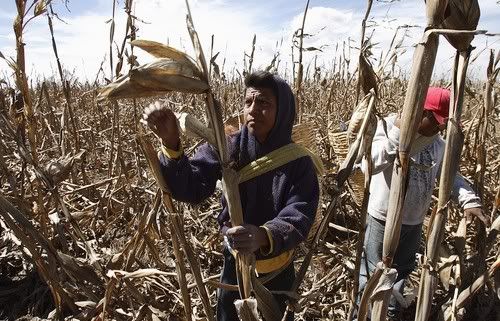
Harvesting Corn In Mexico By Hand
Dozens of Mexican farmers blocked a lane of the border bridge from Ciudad Juarez to El Paso for 36 hours to protest the removal of Mexico’s last tariffs on US and Canadian farm goods. The protest ended today.
Activists lifted a blockade at the U.S.-Mexico border on Wednesday, ending a 36-hour protest against the removal of Mexico’s last tariffs on U.S. and Canadian farm goods.
Mexico abolished its last protective tariffs on basic crops like corn, beans and sugar on Tuesday, under the terms of the North American Free Trade Agreement, or NAFTA. Mexican farmers have complained they won’t be able to compete with U.S. farmers who can sell cheaper products because they receive government subsidies.
Mexico’s Roman Catholic Church has warned that the changes could spark an exodus to the U.S.
“It is clear that many farmers will have a difficult time competing in the domestic market, and that could cause a large number of farmers to leave their farms,” the archdiocese said in a statement issued on New Year’s Day.
More across the Rio Pequeno.
